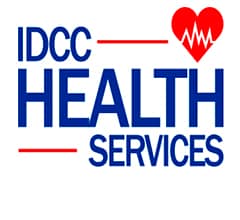Deciphering the appropriate healthcare service between convenience care clinics and urgent care centers is often a crossroads for many, especially during non-critical health episodes. This expanded guide will dive deeper into what each option offers and how to make the best decision for your health needs.
Experience exceptional care at our Clinic in Downtown Brooklyn. Your health and well-being are our priorities. Visit us today for top-notch medical services at our specialized clinic downtown Brooklyn.

Convenience Care Clinic vs. Urgent Care: What You Need to Know
When it comes to non-emergency medical issues that arise during after-hours, many people find themselves torn between visiting a convenience care clinic or an urgent care center. Understanding the differences between these two types of facilities can help you decide where to go when you need medical attention.
Convenience Care Clinics
Convenience Care Clinics are typically designed for minor medical issues that need immediate attention but are not severe enough to warrant a trip to the emergency room. These clinics are an ideal choice for dealing with health concerns such as ear infections, sore throats, high fevers, coughs, minor cuts or lacerations, and even small broken bones. Other common issues treated at convenience care clinics include rashes, sprains, strains, colds, flu, and bladder problems.
These facilities are known for their shorter wait times compared to the ER and are increasingly considered by individuals for their medical needs due to their accessibility and efficiency. Convenience care clinics aim to coexist with other healthcare settings, providing an urgent solution for patients who do not require hospitalization. The most common conditions treated at these clinics include respiratory issues, while the most common procedure is wound repair.
Many convenience care locations also offer additional services such as X-ray imaging and blood tests, making them a valuable option for those looking to address their medical needs conveniently.
Urgent Care Centers
Urgent Care Centers, on the other hand, are equipped to handle more serious conditions that are not life-threatening but still require immediate attention. While the text does not explicitly define urgent care facilities, it is generally understood that they bridge the gap between convenience care clinics and the emergency room.
It’s important to note that the Emergency Room should be your go-to option for severe medical issues. According to the information provided, you should head to the ER if you’re experiencing symptoms like chest pain, shortness of breath, or signs of a stroke or heart attack, as these conditions require immediate and advanced medical treatment.
In summary, if you’re dealing with minor health issues and need quick, accessible care, a Convenience Care Clinic may be the right choice for you. However, for more serious, yet not life-threatening conditions, an Urgent Care Center may be more appropriate. Remember, for severe and life-threatening conditions, the emergency room is always the best option.
Understanding the differences between these healthcare options allows you to make informed decisions and ensures that you receive the appropriate level of care when you need it.
